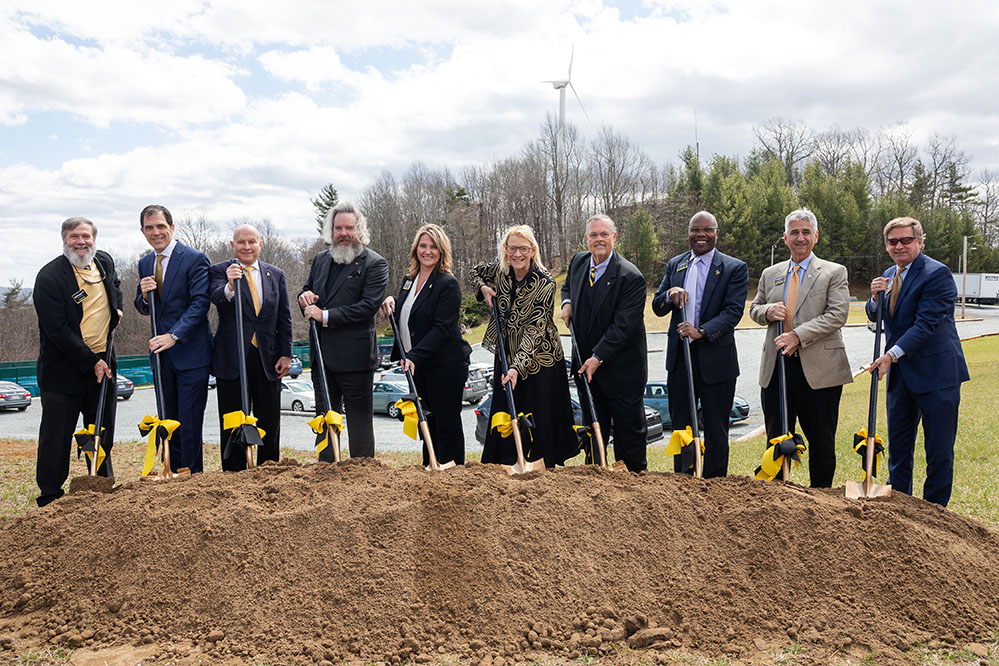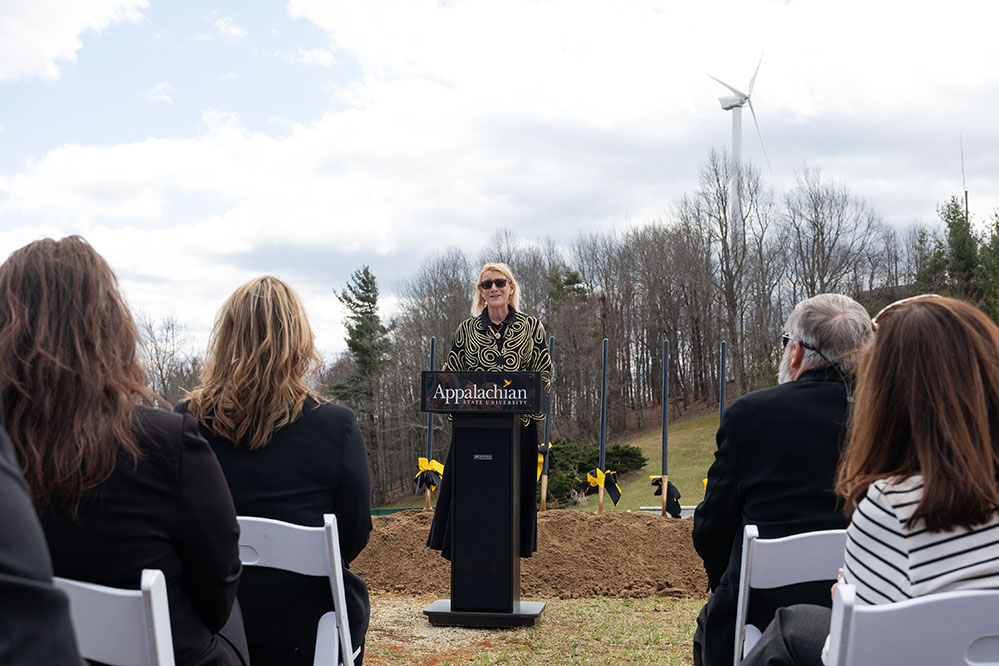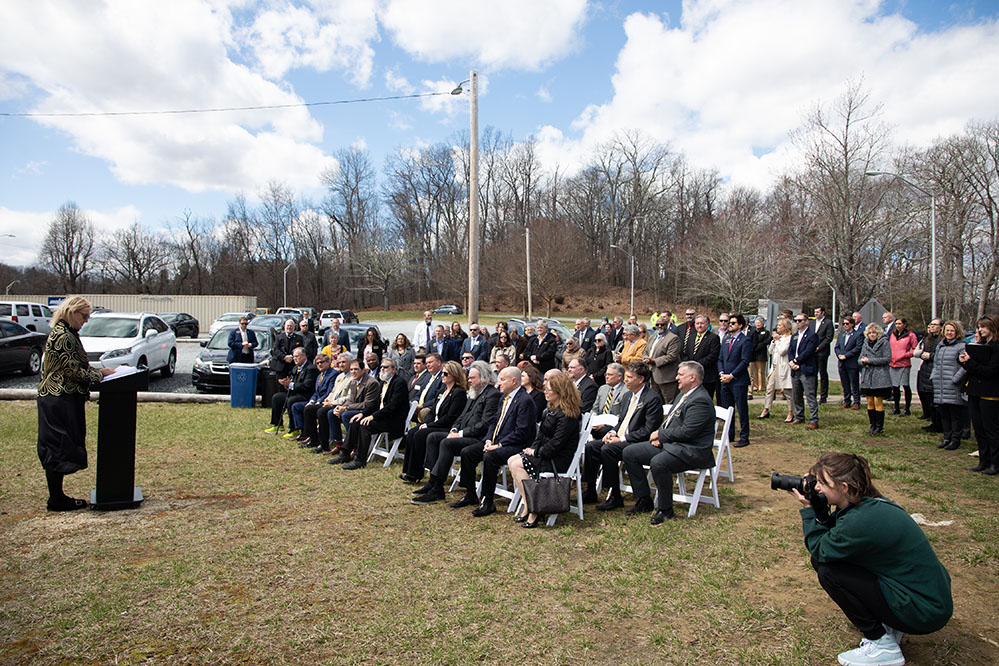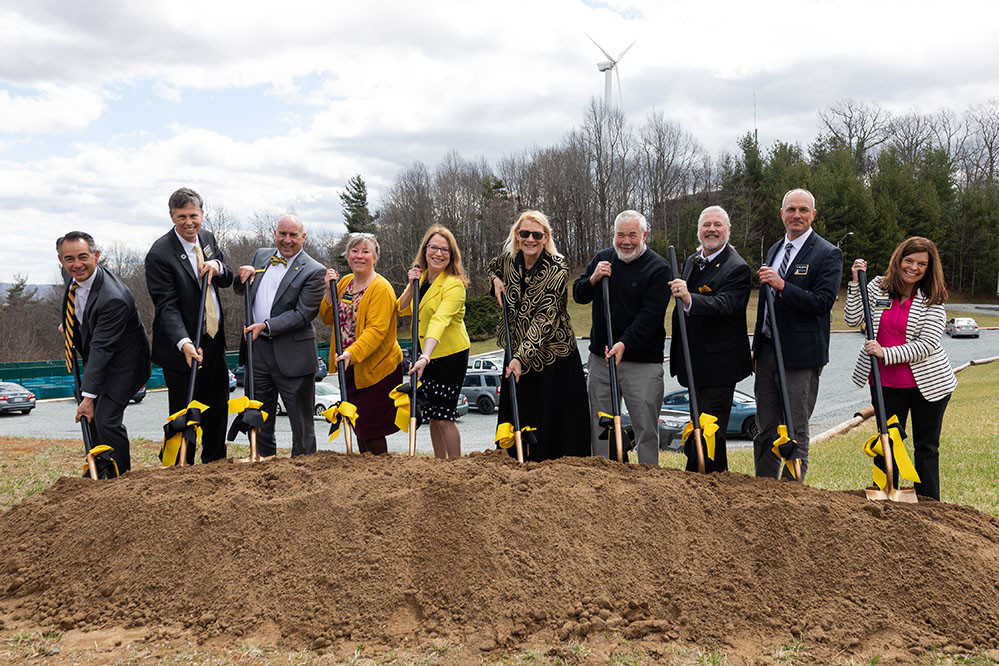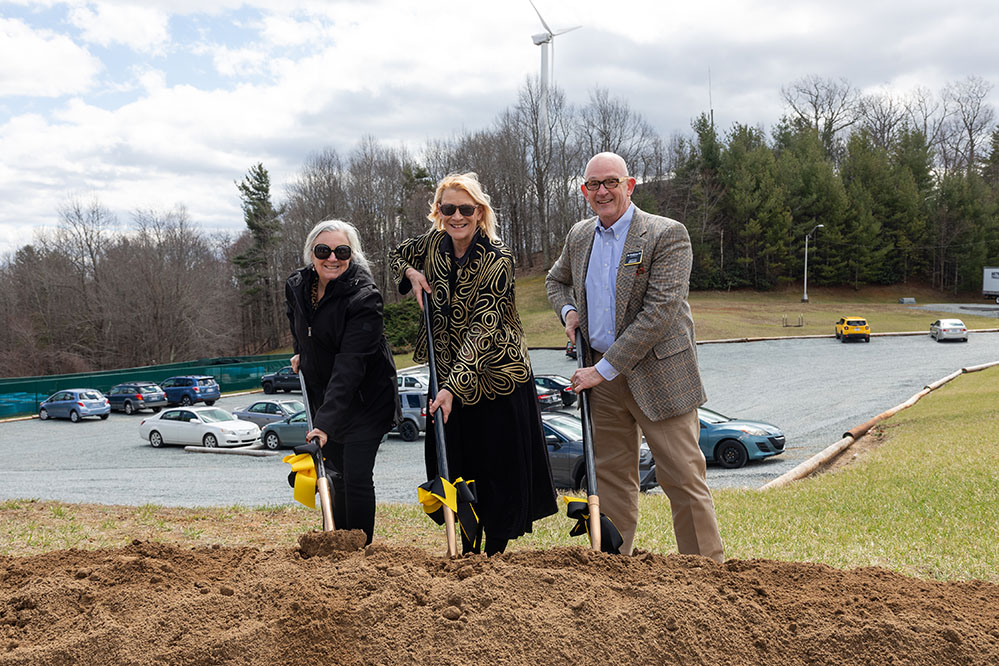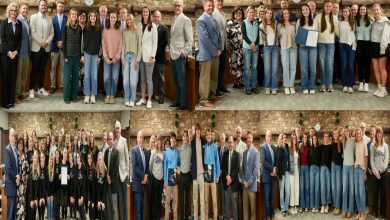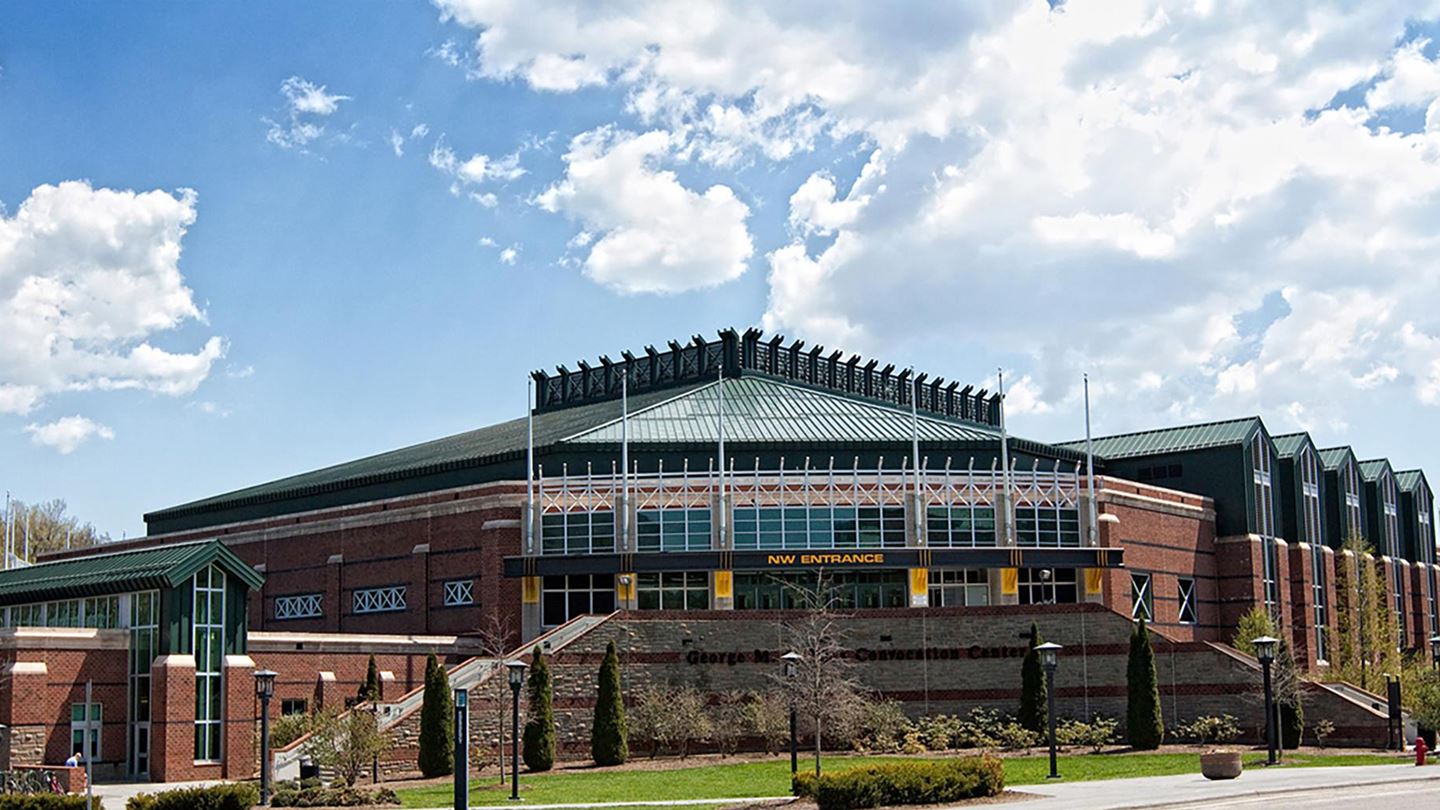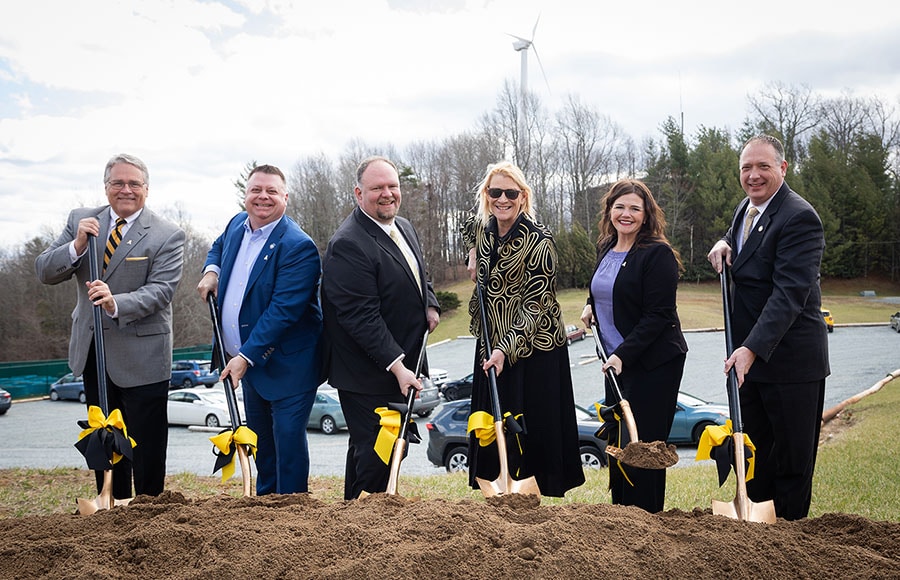
Last Updated on March 28, 2022 2:16 pm
BOONE, N.C. — Friday afternoon, Appalachian State University broke ground on a long-held goal and a valuable piece of its future — the Innovation District project. Phase one of development includes the Conservatory for Biodiversity and Education, which will serve as a vital link between the campus and the regional community through education, research and outreach.
“App State’s future Innovation District is an ambitious enterprise that will have a lasting and powerful impact on the region, broadening economic development opportunities for rural areas in Northwestern North Carolina,” App State Chancellor Everts said. “The Innovation District will bring together expertise across disciplines and facilitate collaborations on campus and with the communities across the region.”
For the ceremonial groundbreaking, Everts was joined by town, county and state government officials, as well as App State and UNC System leadership and faculty, staff and student members of the campus community.
The long-term Innovation District project has been included in the university’s master planning since 2016, with the property receiving millennial campus status in fall 2015 — a designation made by the University of North Carolina Board of Governors. This status provides App State greater flexibility for planning and utilization of the property, which is located at the top of Bodenheimer Drive and adjacent to App State’s Nature Preserve. Numerous faculty and staff have worked to develop a vision for the project, with input from students and alumni.
In her remarks, Everts shared that App State is reviewing concepts for a Zero-Carbon District, meaning the buildings in the Innovation District will be highly energy efficient and powered by carbon-free, renewable energy sources. This will not only lower the environmental impact of the buildings, but also will help make them more financially viable.
The project is made possible with a biennial state budget allocation of $54 million in nonrecurring funds in the current fiscal year, which will support the development of district infrastructure and the district’s first building — the Conservatory for Biodiversity and Education.
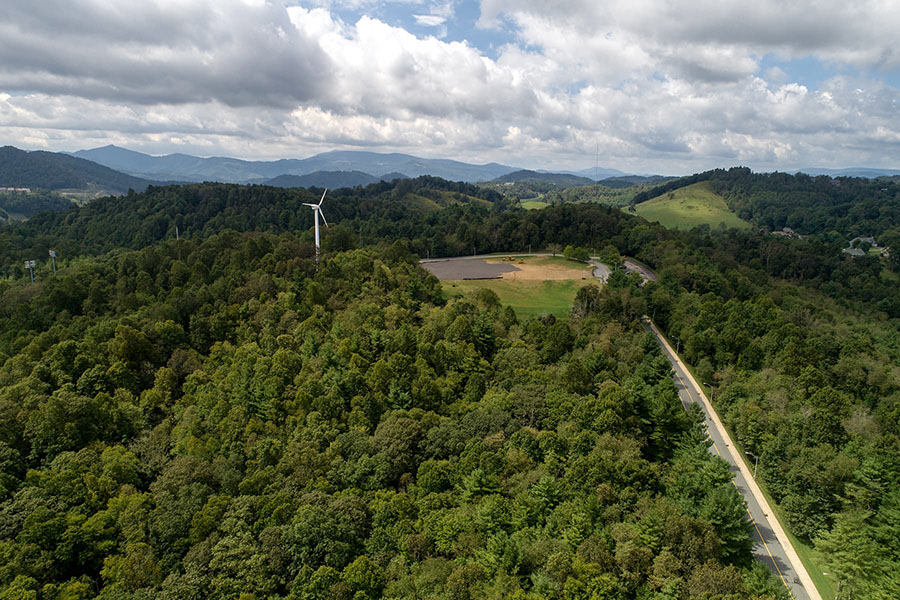
Phase 1 development
The conservatory, the district’s first academic building, will build on existing opportunities available through the Department of Biology’s teaching and research facilities and will include a mix of laboratories, meeting space and gardens.
Paired with the adjacent Nature Preserve, the facility will advance the natural and cultural history of the Southern Appalachian region, allowing the App State Community and visitors to understand the natural history and economic importance of the region’s biodiversity and gain a heightened appreciation of the research and creative endeavors being conducted at App State.
Other district academic facilities that are also in discussion include:
- spaces for research, teaching and demonstration;
- workspace for multidisciplinary projects;
- renewable energy labs;
- conference rooms; and
- expanded exhibition and studio spaces.
Additional projects for the first development phase include:
- the construction of at least 120 rental units for faculty and staff housing;
- the installation of pedestrian walkways between the planned site facilities;
- an extension roadway connecting Bodenheimer Drive and Poplar Grove Road; and
- the implementation of sustainable district infrastructure that includes renewable energy sources.
The university asked design firms submitting proposals to include faculty and staff housing in the Innovation District Master Plan, as one way to help address housing shortages that affect App State’s ability to recruit and retain talented faculty and staff.
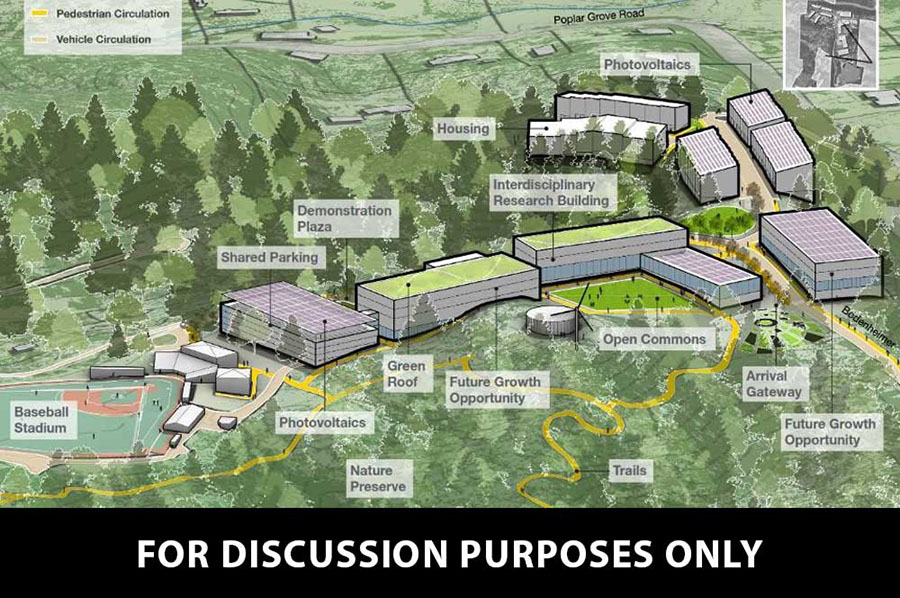
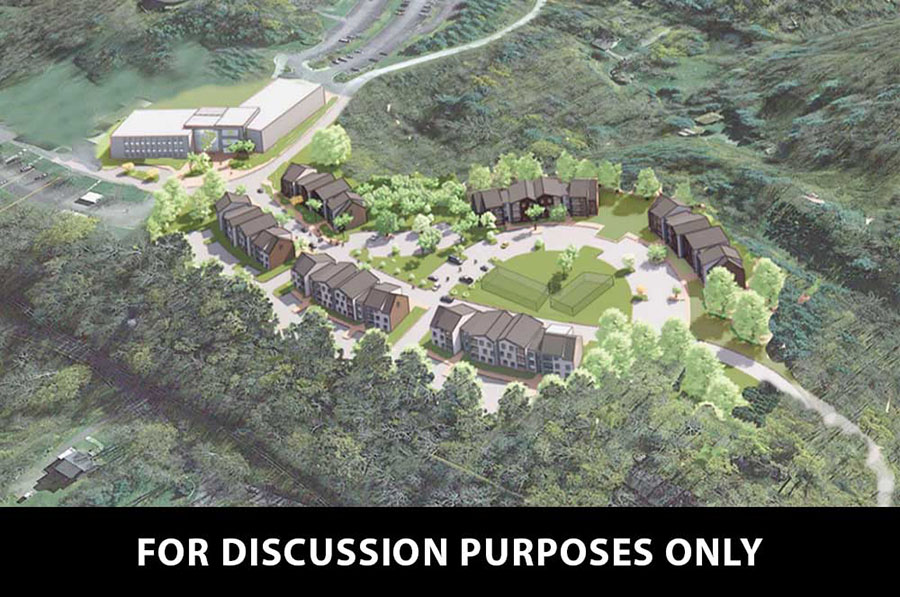
“We look forward to continuing the work we have done with many of you here today, as well as with leaders from education, business and community development, to ensure this Innovation District extends the university’s mission of teaching, research and service to the region and the state,” Everts said in closing. “The potential is limitless!”
For more information about App State’s Innovation District — and other campus construction projects — visit the App State’s Future website.
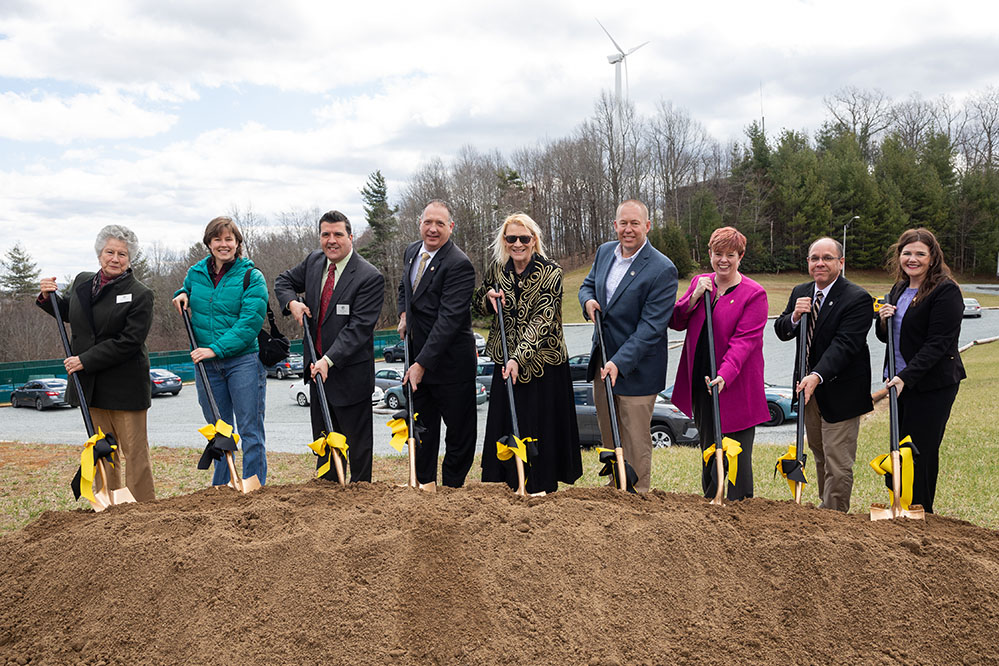
Appalachian State University Chancellor Sheri Everts, center, is joined by local and state government officials for the Innovation District groundbreaking ceremony, held March 25 at the top of Bodenheimer Drive. Pictured with Everts, from left to right, are Boone Mayor Pro Tem Edie Tugman, Boone Town Council Member Becca Nenow, Boone Mayor Tim Futrelle, Rep. Ray Pickett, Watauga County Board of Commissioners Chair John Welch, Blowing Rock Council Member Melissa Pickett, Watauga County Manager Deron Geouque and Sen. Deanna Ballard. Photo by Chase Reynolds
